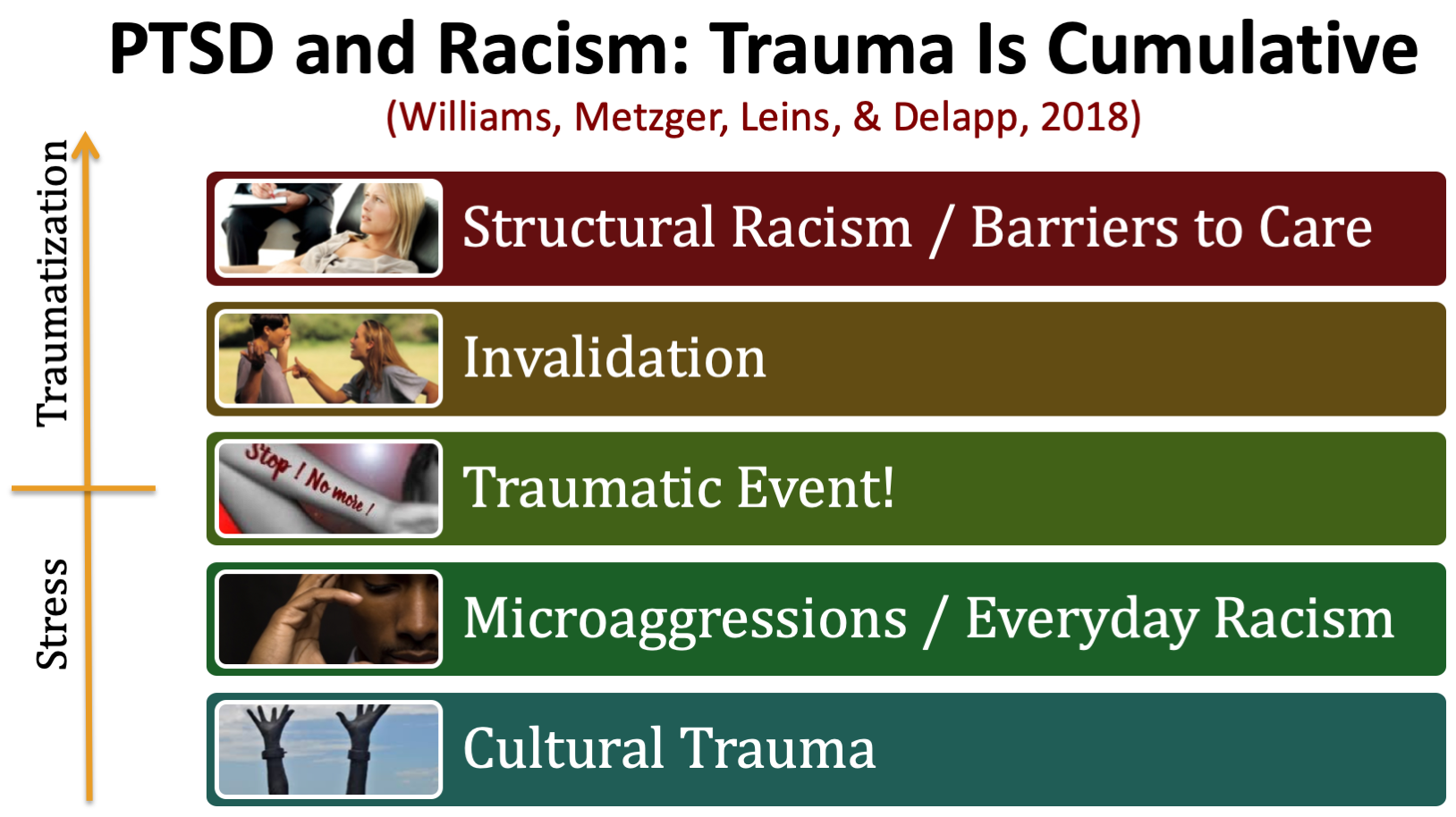Racial Trauma Questionnaires
Find current information about validation of self-report measures to assess trauma from racism and discrimination.
Racial Trauma Interviews
Find current information and download clinical interview measures to assess trauma from racism and discrimination.
Trauma and Oppression Scale
Learn about our work to create a measure of distress and trauma resulting from experiences of oppression and marginalization.
Gender Differences in Trauma Exposure in Black Americans (NSAL)
Black men and women are subjected to an astounding amount of trauma over the lifetime.
Police Violence and the Media
The CMHD lab is working to understand community trauma.
Treating Racial Stress and Trauma
Racism is a disease that produces depression, stress and trauma. New approaches are needed to help those suffering.
Cannabis for PTSD in Veterans
Many veterans are now taking cannabis to manage the symptoms of PTSD, but there is still very little data on how helpful this is and why traumatized veterans may or may not use cannabis.

Racial trauma (also called race-based traumatic stress) is the cumulative effects of racism on an individual’s mental health. It has been linked to feelings of anxiety, depression, despair, and suicidal ideation, as well as physical health issues.
PTSD & Racial Trauma Research

Posttraumatic stress disorder (PTSD) is a disorder that describes the issues faced by many people after they experience or witness a traumatic event. Anyone who has been exposed to traumatic events that causes a serious fear for their life or the lives of others is at risk to develop PTSD. People typically affected include: survivors of violent acts and disasters, emergency responders to traumatic events, people who experience the sudden death of a loved one, anyone who has been abused, neglected children, and combat veterans. However, many other events can be traumatic as well, particularly to people of color, including police violence, distressing medical/childbirth experiences, workplace harassment, and incarceration.
Racism and discrimination have strong negative consequences upon those who are oppressed, and this continually occurs as part of mainstream Western culture. Racism creates barriers to health care, as well as negative physical and mental health outcomes among people of color. In Black, Indigenous, and other People of Color (BIPOC), there is a documented relationship between racial discrimination and increased psychological disorders. Racial trauma, or race-based trauma, consists of the mental health symptoms a person experiences as a result of racism or discrimination, which has been compared to Posttraumatic Stress Disorder (PTSD).
The prevalence rates of race-related PTSD are unknown. While it is clear that a discrete violent act can be a precipitating event for PTSD, vicarious experiences and racial microaggressions are often overlooked as contributing factors. Frequently, people of color experience cumulative racism, which can lead to PTSD symptoms. Regarding prevalence rates, what can be said is most ethnic minority groups have higher rates of PTSD, they may experience PTSD symptoms of greater severity compared to White individuals, and discrimination certainly plays a role in this disparity.